- Home
- William Bell
Julian Page 7
Julian Read online
Page 7
But I didn’t see the girl with the blue beret.
Disappointed, I turned and jogged toward Spadina and found the street I was seeking. It wasn’t much more than an alley. A sign hanging out over the narrow pavement advertising the Chongqing Gardens promised “Real Szechuan Cuisine.” The restaurant window was strung with red paper lanterns hanging over a bank of garish colour photos showing plates of food that looked like plastic.
Inside, the place was more like a long hall than a restaurant, with a counter inside the door where a grey-haired woman wearing a cardigan and a toque perched on a stool behind the cash register, reading a Chinese-language newspaper. Mrs. Zhu, I guessed, the person who would receive the rent money from me every month.
She looked up when I approached, eyed me up and down, the forehead above her plate-shaped face creased by a frown, her wide mouth turned down at the corners.
“You wan’ eat here or take out?” she demanded. “Maybe takeout is best.”
“Mrs. Zhu?”
She nodded. The frown disappeared, the mouth formed a smile. “You Julian.”
I nodded, unzipping my pack. When she saw the envelope she shook her head. “No, no. Not here. Sit in back. I come in a minute.” Then she screeched something in Chinese toward the rear of the restaurant.
None of the customers—all men, all hunched over their bowls of rice or noodles—looked up as I made my way to the one empty table in the shadows at the back. As soon as I sat down a young woman, her hair jammed under a paper hat, her brow beaded with sweat, crashed through the swinging kitchen doors, plunked a bowl of steaming liquid in front of me and disappeared as quickly as she had come. Savoury, spicy steam clouded from the bowl.
A few minutes later, Mrs. Zhu shuffled to the table and took a chair. “Eat,” she commanded, pointing at the soup.
I was hungry from running, still too heated to eat, but I picked up the porcelain spoon. The spicy liquid seemed to explode in my mouth, a brew of unfamiliar flavours laced with fire. I coughed and spluttered, but the trickle I managed to swallow was delicious.
“Hah!” the triumphant Mrs. Zhu proclaimed. “Not used to good food.”
“I think I’ll just wait till it cools a little,” I wheezed.
“Now you give money.”
I handed over the envelope and zipped up my pack. Mrs. Zhu counted through the bills, then stuffed the envelope into her pocket as if it was a used tissue. From the other pocket she took a cellphone.
“From Chang. It safe. You eat here any time. Not pay. Eat good Chinese food. Westerners no good at cooking. Ruin everything. Now I go back.”
And with that she made her way to her stool and newspaper. I tried the soup again, sipping carefully from the spoon. It had cooled, but the peppery, blowtorch intensity of the spices hadn’t. I finished it, then got up and left. Mrs. Zhu didn’t look up as I passed her, but when I pulled the door open I heard her parting words behind my back.
“You be careful, Julian. Many shark in water.”
Wondering what she meant, I walked through the darkened alley to Spadina, then began to jog toward Grange Park. It was on my route home. Sort of.
The girl was there.
The sky had darkened and the air seemed even heavier and more oppressive. The soccer game had folded up and gone. A few of the teenagers hanging out on the benches looked at the clouds apprehensively. The girl was sitting alone at a stone table under a shade tree, writing in a notebook.
I walked up to her, suddenly self-conscious in my running shorts and sweaty tank top. My heart was leaping in my chest and my mouth had gone dry. She didn’t notice me; she kept on writing—or printing. Rows and columns of numbers flowed from her pen.
She was wearing a baggy white T-shirt, faded and threadbare. She had pulled her hair back from her face, giving her a slightly severe look. She had a wide, pretty mouth with an ironic twist in one corner.
“Well, well,” I said, “a numerate note-taker.”
It was the closest I could get to her calling me a literary loiterer a couple of days ago, and I thought I was being clever. As soon as the words passed over my teeth, I regretted them.
But when she looked up and saw me she smiled. “You found me,” she said, slapping the notebook closed and capping her pen. “Come to collect your debt?”
A gust of cool wind swept across the park grounds, stirring up dust and bits of paper, just as thunder boomed above the city. She stuffed her belongings into her satchel and scrambled to her feet.
“No, I just wanted to see you.”
“Let’s get out of here,” she said.
We ran across Dundas to a coffee shop and stepped inside just as a blast of rain peppered the window. We took a table and the girl went to the counter for our drinks, leaving her coat on her chair but taking her canvas tote with her. I tried to keep my eyes off her, turning to look out on the street, where the rain bucketed down and tree branches thrashed in the wind. In a few minutes the girl returned with our coffees and a plate of sticky buns on a tray. She took her seat and proceeded to dump two tubs of cream and three sachets of sugar into her coffee, stirring it with a plastic stick.
“Thanks,” I said.
“De rien,” she replied, taking a wolfish bite from a bun and licking brown sugar off her fingers as she chewed.
I drank in slow sips, watching her eat. The outfit she was wearing—rough, scuffed boots, cargo pants, the old T-shirt—emphasized her attractiveness, her lithe movements, her skin, eyes, hair. She was no runway queen, but she hadn’t adopted the tough don’t-mess-with-me style some girls favoured either. She had no visible piercings or tattoos. She was … herself, no phony act, no desire to please. I almost laughed. She was munching away, cheeks packed with raisin bun, and I couldn’t keep my eyes off her. She drove ideas out of my head as soon as they formed.
She gulped down some coffee.
“So,” she asked, “why did you warn me?”
“Warn you?”
“Yeah. At the art gallery that day.”
“I don’t know.”
“Sure you do. You want the last raisin bun?”
“No thanks. Go ahead.”
But she had already demolished a third of it.
“Anyway,” I said, “I’ll tell you if you tell me something first.”
She licked her finger and ran it around the plate, chasing granules of sugar, then stuck the finger in her mouth.
“Depends what it is you want to know,” she replied.
“Your name.”
“Ninon. What’s yours?”
“Julian.”
She wiped her hand on her pants and held it out. “Pleased to meet you, Julian.”
“Me too, Neen—er, sorry, how do you say it?”
“Ni-non. Like the joint in your leg plus non. It’s a nickname for Anne. So, getting back to my question and your evasive non-answer—”
How could I explain why I had alerted her to the guard who was watching her? Because she fascinated me—the smooth way she had slipped past the ushers, getting into the gallery without paying; the light-fingered theft of the woman’s wallet; her bold reply to my lame pickup line? Because that day, as now, there was something about her, something exciting and mysterious that I couldn’t explain to myself, let alone her?
I settled on a different answer, but a true one. “I didn’t want to see you get caught. I knew they’d throw you between the gears.”
She tilted her head. “Gears?”
“Yeah. The machine. They dump you in at one end and you never know when—or if—you’ll ever come out again. The guard would have grabbed you, marched you to a little room with no windows and called the cops. You’d have been taken away in a cruiser to the cop shop. Forms would have been filled out and—”
“Okay, okay, I get it.”
“I didn’t want that to happen to you.”
She looked straight into my eyes for a moment, then her glance slid toward the window.
“The rain’s stopped,” she o
bserved.
“You’re not like normal girls,” I blurted. I hadn’t been planning to say it. “I mean that in a nice way,” I added hastily. “What I mean is—”
“Who wants to be normal?” There was no anger in her voice. “Anybody can be normal.”
I laughed. “Then we have the basis for a beautiful friendship. I’m not normal either.”
Ninon got to her feet, threw on her coat and picked up her tote. “I’d better go,” she said.
“Wait! I … can we meet again? Soon?”
She turned toward the door. “If you want.”
I followed her outside. “Where?”
The sun had broken through, illuminating the beads of rain on the overhead wires and leaves, the puddles on the sidewalk like sheets of glass. Ninon stood on the curb and nodded toward the park.
“Drop by. You’ll find me there once in a while.”
“But where do you live?”
She held up her index finger and revolved it slowly. “Around. Bye.”
And she jaywalked across Dundas. I knew better than to follow her.
I jogged back to my apartment, shivering in the post-storm cool, with Ninon occupying my mind the way light fills a room. I couldn’t stop thinking about her. I replayed our brief time together, tasting and retasting the memory while it was fresh, analyzing her words and the expressions that played across her features. And as usual I came to pessimistic conclusions: one, she only had coffee with me to thank me—pay me back—for helping her at the gallery that day; two, she wasn’t interested in seeing me again.
Then I combed through everything I had said or done while we were together, like the ritual dissection of my performance after a game, searching for mistakes, the moves I could practice for next time. But I couldn’t unsay my words to her, and it looked like there might not be a next time, so it was a depressing and useless exercise. What was there about Ninon that made me feel that I was about to cross a line and run heedlessly toward something new? I had been Mr. Careful for most of my life. Why was I ready—eager—to throw that away?
ELEVEN
THE NEXT MORNING I walked into the store to find Gulun in a turmoil, so upset he’d forgotten to knot his tie. There had been a recall order issued by the company that supplied our dairy products. Gulun ordered me to empty the coolers and haul every carton of milk, tub of yogurt, block of butter and wedge of cheese to the back room so the company truck could come and whisk it all away “before somebody got sick.”
“What about the ice cream?” I asked. “It’ll melt.”
“Put it out in the alley. How I gonna make any money if I can’t sell milk for two days?” he lamented.
“What’s wrong with the stuff?”
“I dunno. A germ.”
I set to work filling a cart with milk, lining up the containers neatly so they wouldn’t fall off on the trip to the back room. On the back of each carton was the picture of the same missing person—a preteen girl—and the row of identical images looked like a strip of postage stamps. I wondered if the posters did any good.
While I was hard at work Curtis sauntered through the door and made his way to the coffee machine.
“Morning, Julian,” he said.
“Hi.”
Curtis poured his beverage, turned and leaned on the counter, idly staring at the faces with MISSING over their heads and the name of the sponsoring organization under their chins. When the cart was full I pushed it to the back room. By the time I came back to start on the yogurt and sliced cheese, Curtis had left.
At quitting time I slogged home and mowed the lawn and swept the clippings off the sidewalk and stowed the mower in the shed behind the garage. Then I changed and put in a ninety-minute run, exploring the streets to the east of the house. When I got back I showered, threw on some clean clothes and collapsed, pleasantly tired, into my easy chair and opened my book. Below me at Rawlins’s place I could hear the faint, irregular notes of a suffering mandolin.
I read for a while and then got up and microwaved a frozen TV dinner and watched a soccer game while I ate. After the game was over I locked up and went to bed.
When I got to work next morning, Mrs. Altan handed me a note Curtis had left with her the previous afternoon. After lunch, I went to see him.
“Got a proposition for you, Julian. Well, it’s just an idea at this stage,” he corrected as I sat down. “But I’ve been going over the possibilities. It may not come to anything, but who knows?”
“Uh-huh.”
“What do you know about missing persons?”
Red lights flashed in my imagination; bells clanged. For the second time since I’d met him, I thought Curtis might be onto me. I forced a blank look into my face, tried to dial down the panic.
“What do you mean?”
“Well, you’re still a teenager. You must be aware that lots of adolescents are missing.”
“I suppose,” I replied, deciding I probably had nothing to fear after all. “But I don’t know any, if that’s what you’re asking.”
“No, no,” he assured me. “I wasn’t implying that you did. I’m just asking if you know anything about … the phenomenon.”
“Not really.”
“Well, believe me, there are thousands of them out there. A few organizations help parents to find them. They’re all over the Internet. I gather they’re not too effective, and neither are the cops.”
Now he had me thinking about Ninon. Was she on a Missing Persons list in some police station?
“It’s hard to find someone who doesn’t want to be found, I guess.”
“Exactly,” Curtis replied, as if he’d moved a checker to the end of the board. He sat back and stared past me, out the window and onto the street. “All those poor parents, worried sick, terrified, imagining the worst.”
And some of them not so poor, I thought, catching his drift, recalling his strange behaviour at the store yesterday morning, when he couldn’t keep his eyes off the milk cartons. There was no pity in his voice, no empathy. He said it like a man thinking, It’s going to be minus thirty degrees today, and I sell overcoats. His next sentence confirmed my suspicion.
“Ever heard the expression ‘Send a thief to catch a thief’?”
“Sure.”
“Know what it means?”
“I’m not an idiot, Curtis.”
He slipped on his smile. “Come on, humour me.”
“You’re thinking the best person to find a runaway teen is another teen. And you just happen to know one. Your comparison falls down, though, doesn’t it?”
He raised his eyebrows.
“The saying should be ‘Send a runaway to catch a runaway.’ I’m not a runaway,” I lied.
The smile widened. “No, you’re certainly not an idiot. Which is why—”
“Yeah, I know. Which is why you want me to work for you.”
We sat and looked at each other for a moment. Curtis picked up a pen and tapped it on the desktop. I didn’t like what he was driving at. It was too close to home.
I said, “A lot of them don’t want to be found—”
“Sure, but the parents—”
“They have reasons for running.”
“But they’re in danger. Some of them, anyway. You have to admit that. They know what they’re running from but can’t know what they’re running to. And they find themselves in a mess—drugs, prostitution, custody. A few end up dead.”
And they don’t all have a little old Chinese grandpa with an iron handshake and piles of money and lots of connections to back them, I thought. Curtis was partly right, I had to give him that. It was a stretch to believe he was genuinely concerned, but still.
“True,” I admitted.
He rapped his knuckles on the desktop. “Exactly. See? We think alike on this.”
I waited, then it came.
“What I was thinking, Julian, was this: I could maybe try to take on a few clients, parents at their wits’ end. People who have tried the cops, the agencie
s, the posters on the street-light standards. I could talk to them, see, and hint that I know a sort of private investigator who would work on their behalf, a young man who knows the streets, the hangouts, the—”
I cut him off. “And you’d be misleading them. I don’t know—”
“Okay, but your advantage is not what you know so much as what you’re not—you’re not a cop, not a social worker, not an official of any kind. Not an adult. You get the idea? You could talk to kids, ask questions, nose around, follow someone if you have to. You blend in. People your age will talk to you more readily than a person with a uniform or a degree in social work. You’d operate under the radar.”
I saw what he meant. Kids clam up when asked to give info about another kid to an authority figure. It’s something you don’t do. You’d be breaking the strongest code there is.
“I get your point,” I said. “But I’m not the guy you want. If by some miracle I found a runaway and if they didn’t want to go back home there’s no way I’d turn them in, to you or anyone else.”
Curtis put his elbows on the desk and linked his fingers under his chin. “Fair enough, Julian. Let’s put it this way. If what you describe ever happens we let it drop and I tell the parents I failed to fulfill their hopes.”
“I don’t know. I’ll have to think about it.”
The truth was, I didn’t have to think about it at all. I was a runaway myself, with phony ID in my wallet. Chasing stray teens would, sooner or later, drag me into contact with the very people I had to avoid if I wanted to be free—cops and social services. Curtis had said, “Send a thief to catch a thief,” without thinking about what happens to the thief you send. When the job is done he’s still a thief—and he goes right back to jail.

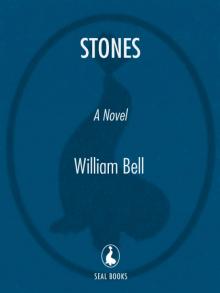 Stones
Stones Fanatics
Fanatics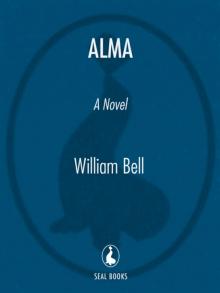 Alma
Alma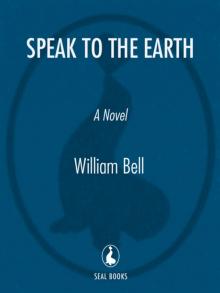 Speak to the Earth
Speak to the Earth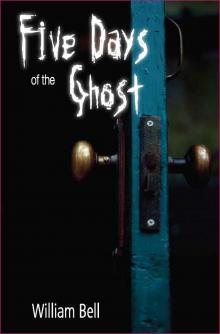 Five Days of the Ghost
Five Days of the Ghost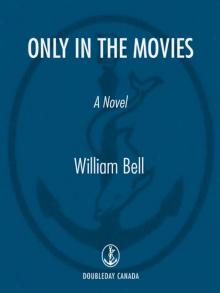 Only in the Movies
Only in the Movies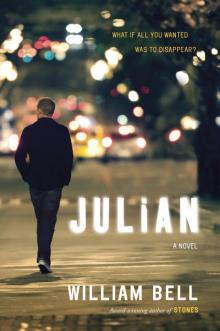 Julian
Julian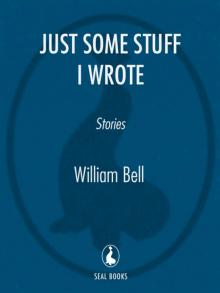 Just Some Stuff I Wrote
Just Some Stuff I Wrote Zack
Zack Forbidden City
Forbidden City Death Wind
Death Wind No Signature
No Signature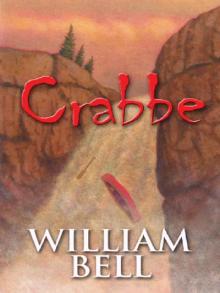 Crabbe
Crabbe